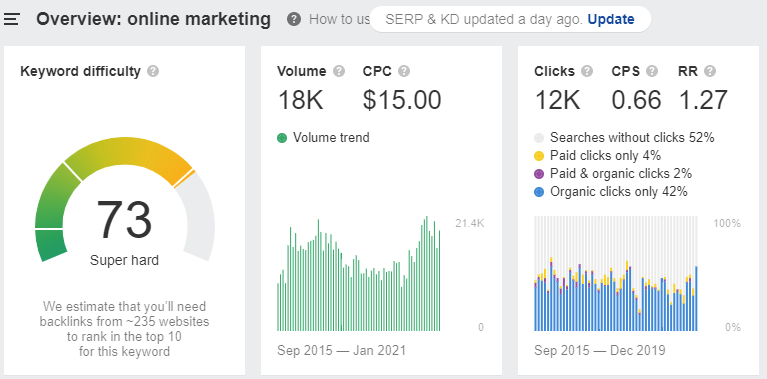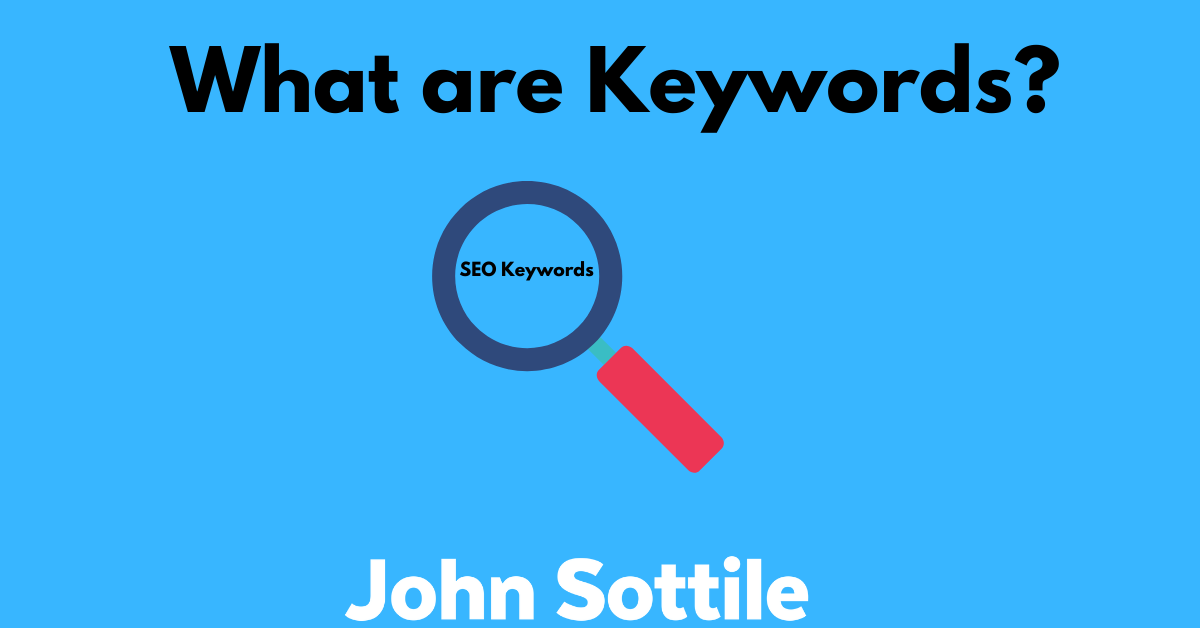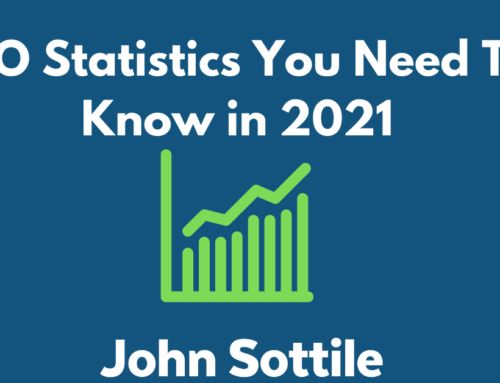What are Keywords?
Keywords are the terms you want your website or profile to appear for on search engines. People use search engines to look for information and answers to their questions. If you have a website, you need to have content on your web pages in order to have them rank for your target keywords.

In simpler terms, keywords are the phrases that your customers type in Google when they want more information.
The more context you provide for Google, the easier it is for the algorithm to understand what your website is talking about. Digital marketers and SEO consultants can help you decide which SEO keywords make the most sense for your website to target.
Search engine marketing is one of the best digital marketing strategies you can use to acquire traffic to your website. It gives small businesses a chance to compete with large brands by leveling the playing field. Choosing the right keywords to optimize for will help you rank your business in your local area.
For example, my website is about SEO. I want my website to appear for SEO in my local area, so my homepage is targeting the term “Staten Island SEO”. I also have a blog where I write articles about relevant digital marketing topics, such as social media marketing. These articles help bring additional traffic to my website. People who are interested in learning more about digital marketing, as well as business owners searching for a possible solution to their digital marketing problems.
When you make content based around your target keywords, you improve your chances of ranking in the serps. Since I blog about search engines and digital marketing related topics, Google can understand what my website is about, and ranks it accordingly.
Of course, keywords aren’t the only factor that plays in to ranking a website, but it’s a pretty important element to start ranking.
Where do you include your keywords?
You wan include your keywords in the title of your website. You can also include your keywords and LSI keywords in the body of your content. This can be with header tags, image alt tags, or simply mentioning it within the context of your content is even enough.
If you’re publishing a long form guide, it’s okay to link out to relevant sources when applicable. Google uses spiders to crawl web pages and external links, so linking out to relevant resources helps Google understand what you’re talking about.
What are long tail keywords?
Long tail keywords are variations of broad terms that have much less competition in the serps. For example, if I wanted to rank a blog post for online marketing, I might have a hard time doing so due to how difficult it is to rank for such a broad term. Broad keywords tend to have a higher difficulty to rank due to the number of websites trying to rank for the term, as well as how many backlinks a specific domain has pointing to those web pages.

This SEO tool says that it would be super hard to rank for online marketing.
However, if I wanted to search for a long tail variation of online marketing, all you have to do is plug your keyword into a keyword research tool like Ahrefs or SEMRush and look for variations of your keyword with a lower difficulty.

As you can see, the term online marketing degree only has a difficulty of 33, making it a much more realistic target for someone to rank for. It also has much less search volume.
Long tail keywords help you narrow out a more specific topic and capture that traffic. If you have a brand-new website, you’ll want to make an effort to target lower competition keywords so you can start bringing in traffic. Once you start bringing in traffic, you can work on optimizing your post to improve the CTR.
What are LSI Keywords?
LSI Keywords are terms or phrases that are related to similar terms that are usually featured in posts around your topic.
Back to my online marketing example.
If you read a blog post about online marketing, what would you expect it to talk about?
Surely it would cover relevant internet marketing topics such as search engine optimization, social media marketing, e-mail marketing, or copywriting, right? After all, these are related marketing terms that people search for on Google. If you have a blog post that’s titled online marketing, and have images that use alt text that contain online marketing, and your h2s are talking about different aspects of online marketing, it becomes much easier for the algorithm to conclude that your post is about online marketing. You don’t need to worry about keyword density and stuffing as long as your content is readable and helpful for the user. Google won’t rank content that stuffs keywords and gibberish for the sake of attempting to game the system.
For a more in-depth guide on LSI keywords, check out Brian Dean’s post on Backlinko.
Conclusion on Keywords
Keyword research is essential if you want to ensure that you’re targeting the best keywords for your website. Keywords help Google understand what your individual pages are talking about. Keywords also help content creators figure out what topics that their audience is most interested in. With this information, you can create awesome content that helps users. As long as you avoid spammy tactics like keyword stuffing, or mislead users with irrelevant keywords, you’ll be in good shape.
Relevant Reading:





